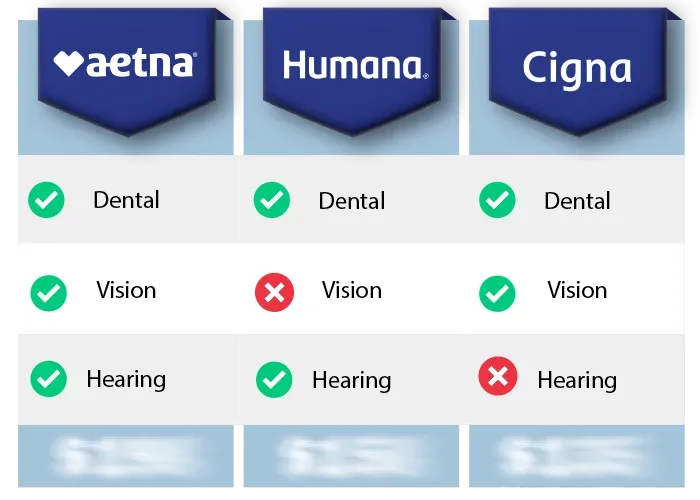
Traditional Medicare Vs Medicare Advantage: Navigating Your Healthcare Choices
Traditional Medicare Vs Medicare Advantage: Navigating Your Healthcare Choices
Introduction
In the vast landscape of healthcare options available to seniors in the United States, two prominent choices emerge: Traditional Medicare and Medicare Advantage. Both offer essential health benefits, but they differ in coverage, cost, and flexibility. This article delves into the nuances of each, helping you make an informed decision tailored to your unique needs.
Understanding Traditional Medicare
Traditional Medicare, often referred to as Original Medicare, is the federal health insurance program for individuals aged 65 and older, as well as certain younger individuals with disabilities. It consists of two main parts:
Part A (Hospital Insurance): Covers inpatient hospital stays, hospice care, and some home health care.
Part B (Medical Insurance): Covers certain doctors' services, outpatient care, preventive services, and medical supplies.
Pros:
Nationwide coverage: You can visit any doctor or hospital that accepts Medicare.
No need for referrals: See any specialist without needing a referral.
Predictable costs: Standard premiums, deductibles, and coinsurance.
Cons:
No maximum out-of-pocket limit: You could face high costs if you need extensive medical care.
No routine vision, dental, or hearing coverage.
Deciphering Medicare Advantage
Medicare Advantage (Part C) is an alternative to Traditional Medicare. Offered by private insurance companies approved by Medicare, these plans include both Part A and Part B benefits and often provide additional services.
Pros:
All-in-one coverage: Many plans offer prescription drug coverage and additional benefits like vision, dental, and hearing.
Maximum out-of-pocket limit: Protects against high costs.
Potential for lower premiums: Some plans even have $0 premiums.
Cons:
Limited network: You might need to see doctors in the plan's network.
Referrals required: Some plans require referrals to see specialists.
Plan restrictions: You might need prior authorization for certain services.
Key Differences to Consider
Flexibility vs. Additional Benefits: Traditional Medicare offers the flexibility of seeing any provider that accepts Medicare, whereas Medicare Advantage plans might limit you to a network but offer additional benefits.
Cost Structure: With Traditional Medicare, you might face higher out-of-pocket costs without a maximum limit. In contrast, Medicare Advantage often has a set maximum out-of-pocket limit.
Geographical Coverage: If you travel frequently, Traditional Medicare might be more suitable due to its nationwide coverage. Medicare Advantage plans often have specific service areas.
Making an Informed Decision
When deciding between Traditional Medicare and Medicare Advantage, consider the following:
Healthcare Needs: Do you need regular specialist visits or additional benefits like dental and vision?
Budget: Analyze the costs, including premiums, deductibles, and out-of-pocket maximums.
Travel: If you travel often, consider the geographical limitations of your plan.
Future Health Needs: Think about potential health needs in the coming years.
Conclusion
Choosing between Traditional Medicare and Medicare Advantage is a significant decision that impacts your health and finances. By understanding the pros, cons, and key differences, you can select a plan that aligns with your healthcare needs and lifestyle.
Remember, it's essential to review your Medicare choices annually, as health needs, plan coverages, and personal circumstances can change. Making an informed decision ensures you receive the best care possible, tailored to your unique situation.

Copyright © 2025 Senior Benefits Guide All Rights Reserved.
204 Church St Suite 1A, Boonton NJ 07005
Disclaimer: This website is not affiliated with the Medicare/Medicaid program or any other government entity. The information provided on this website is for informational purposes only. It is not intended to be, nor does it constitute any kind of financial advice. Please seek advice from a qualified professional prior to making any financial decisions based on the information provided. This website acts as an independent digital media & advertising publisher. This webpage is formatted as an advertorial. An advertorial is an advertisement that is written in an editorial news format. PLEASE BE AWARE THAT THIS IS AN ADVERTISEMENT AND NOT AN ACTUAL NEWS ARTICLE, BLOG, OR CONSUMER PROTECTION UPDATE. This website MAY RECEIVE PAID COMPENSATION FOR CLICKS OR SALES PRODUCED FROM THE CONTENT FOUND ON THIS WEBPAGE. This compensation may affect which companies are displayed, the placement of advertisements, and their order of appearance. Any information, discounts, or price quotations listed may not be applicable in your location or if certain requirements are not met. Additionally, our advertisers may have additional qualification requirements.
Our goal is to provide exceptional service. One of our agents may reach out to you to discuss your order, ask for feedback, and/or see if you need any assistance with your products, services, or plans, at the phone number you provided regardless of your do-not-call list status. You may opt-out of further contact at any time by simply telling our customer service team that you would no longer like to be contacted. In the event that our team is unable to reach you by phone, they may send you a text message letting you know that we called. Both our text messages and phone calls may be sent or connected utilizing automated software. Carrier charges may apply. You may opt-out of any future contact via text message by replying anytime with "STOP".
Copyright © 2025 All Rights Reserved.
Find Medicare Advantage Plans in 3 Easy Steps

